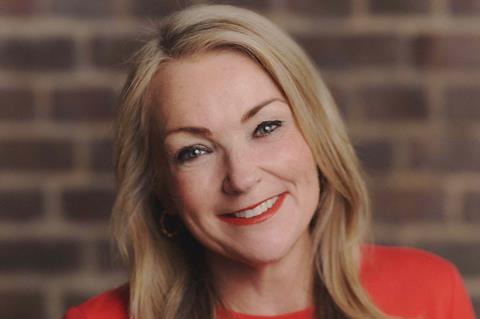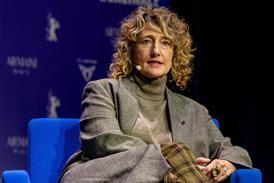
In Jay Hunt, the BFI has landed one of the most experienced UK media executives of her generation as its new chair, appointed by the government’s Department of Culture, Media and Sport.
Hunt has run three of the UK’s biggest TV channels at the BBC, Channel 4 and Channel 5, and also has US streamer experience from leading the European team of Apple TV+.
“Whatever space Jay is working in, she brings incredible energy, spirit and creative rigour to her role,” said Piers Wenger, A24’s Europe head of TV, who was head of drama at Channel 4 under Hunt. “She is exacting, has little tolerance for complacency or conventional wisdom, and whether in her public or private sector homes, has driven quality, style and innovation through her slate. She will be a real friend and a force for the BFI.”
In the 1990s and early 2000s, Hunt cut her teeth in the demanding and, at the time, male-driven world of the BBC newsroom, rising to editor of the flagship One O’Clock News and Six O’Clock News on BBC One. Her programming experience was broadened by a spell running the BBC daytime output before she joined Channel 5 as director of programmes.
By 2008, she was in charge of BBC One before becoming chief creative officer at Channel 4 in 2011, one of the biggest and most challenging TV commissioning roles in the UK.
As public service broadcasters, the BBC One and Channel 4 roles came with tremendous media scrutiny – something with which Hunt was not always comfortable. During her tenure, Hunt’s decision making was very much in the public spotlight after a tribunal found that the BBC discriminated against dropped TV presenter Miriam O’Reilly on the grounds of her age.
At Channel 4, Hunt oversaw a period for which the broadcaster won acclaim for its ground-breaking coverage of the 2012 Paralympics, commissioned hits such as Googlebox, Derry Girls and Catastrophe and controversially poached the ratings juggernaut The Great British Bake Off from the BBC. Among the independent production community, the fast-talking Hunt had a reputation as something of a polarising figure. In the chase for ratings, she was sometimes accused of micromanaging projects or for airing provocative shows with controversial titles such as Benefits Street, which focused on welfare claimants.
However, Hunt was a powerful advocate for her channel, often described as the cleverest person in the room and never afraid to stand her ground. In 2016, she had a memorably heated public exchange at a Royal Television Society debate with then BBC exec and former Labour minister James Purnell after the poaching of The Great British Bake Off.
Kenton Allen, the CEO of Big Talk which is behind upcoming Apple TV+ comedy series The Completely Made -Up Adventures Of Dick Turpin, applauded the appointment: “Filmmakers around Britain should know we have an exceptional BFI chair to help keep British creatives at the forefront of global entertainment and firmly on the agendas of our government.
“Jay has exceptional taste, world-class relationships and a phenomenal work ethic. She’s an incredibly strategic thinker and takes a progressive approach to organisational nonsense and cutting to the chase in meetings.”
Lower profile
At Apple TV+, Hunt has likely enjoyed being able to keep a low public profile since joining as European creative head in 2018. Corporately, Apple executives tend not to do interviews and prefer to let the content do the talking.
Despite huge competition from rival streamers, Apple TV+ has steadily gained traction with subscribers thanks to shows such as Slow Horses, Hijack and Ted Lasso.
Quality over quantity has been the watchword at Apple TV+ during Hunt’s tenure. It focuses on fewer commissions than platforms such as Netflix, allowing execs to spend time and money on development.
David Abraham, the former CEO of Channel 4 who recruited Hunt to the channel, said: “As film, TV and streaming continue to converge both creatively and in terms of business models, Jay’s broad and senior leadership experience make her a great chair of the BFI. In addition, her roots in public service media fit well with the broader remit of the organisation.”

























No comments yet